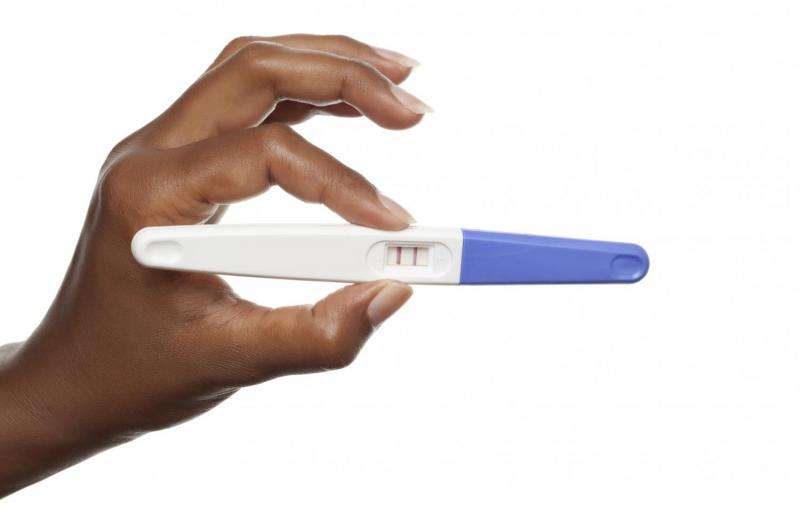Poor young women at greater risk of unintended pregnancies

Poor women have fewer but longer relationships, use contraceptives less frequently and use less effective methods than women from more advantaged backgrounds, according to a new University of Michigan study.
These relationship and contraceptive patterns may place these young women at greater risk of unintended pregnancies, says the study's lead author Yasamin Kusunoki, assistant professor at the U-M School of Nursing and faculty associate at the Population Studies Center and the Survey Research Center at the Institute for Social Research.
Kusunoki and colleagues used data from the Relationship Dynamics and Social Life study, which collected weekly information about 18- to 19-year-old Michigan women's relationships, sex, and contraceptive behaviors for 2.5 years. For the current study, the sample involved almost 850 young women during the first year of the study.
Higher rates of unintended pregnancy among young black women in previous studies have fueled speculation that black women may engage in riskier sexual and contraceptive behaviors than their white peers. In fact, young women from both races engaged in sex and used contraception with similar frequency and consistency during the study period.
Black women did not differ from white women in their number of discontinuations or number of different methods used, and actually had fewer method switches (all previously suggested risk behaviors for unintended pregnancy) than white women, Kusunoki says.
After accounting for disadvantage, the only significant difference between black and white women was contraceptive method choice, she says. Black women used oral contraceptive pills less often and relied on condoms more often than their white counterparts.
The perceived side effects of hormonal contraceptives and inadequate experiences with the health care system may contribute to black women's greater reliance on condoms, Kusunoki says. Condoms are highly effective for sexually transmitted infection prevention. Nevertheless, relying on condoms alone for pregnancy prevention likely contributes to disadvantaged and black women's higher risk of unintended pregnancy.
Characteristics other than socioeconomic status and race also were related to sex and relationship experiences. Highly religious women had less frequent sex in their relationships than their less religious peers, and had marginally fewer partners during the year. However, they were no more or less likely to use contraception, to do so consistently or to change contraceptive methods across time.
Kusunoki and her colleagues are currently further investigating the role of relationship dynamics on contraceptive patterns, particularly, relationship seriousness and instability, as well as intimate partner violence.
More information: Young Women's Relationships, Contraception and Unintended Pregnancy in the United States. DOI: 10.1057/9781137030399_7

















